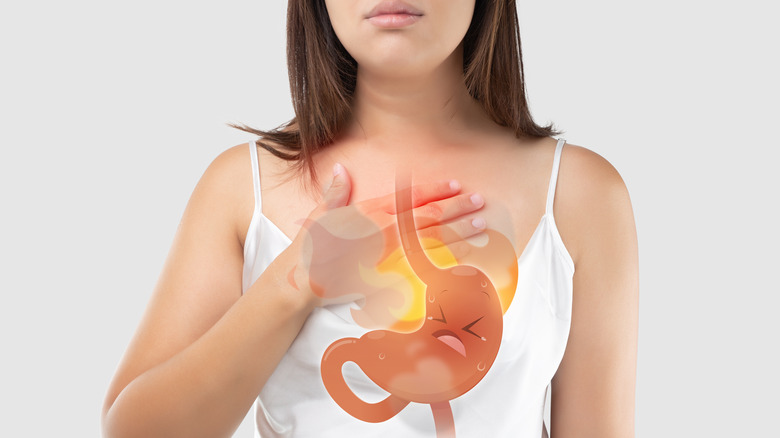Knowing how to handle dental emergencies can truly be a game-changer when it comes to urgent situations. Whether you’re dealing with a throbbing toothache or a chipped tooth, being well-prepared and taking the right steps can work wonders in relieving pain and avoiding any additional harm.
The information in this article will help you know how to recognize dental emergencies and respond to them appropriately. It will look at common problems that can lead to emergencies and what to do in such situations, as well as provide tips on preventing dental emergencies.
Recognizing Dental Emergencies
Recognizing dental emergencies is important in maintaining oral health and preventing further complications. Dental emergencies can range from severe toothaches and broken teeth to infections and injuries to the mouth or jaw. One of the main reasons why it is important to recognize dental emergencies is because prompt treatment can often make a significant difference in the outcome. For example, if a tooth is knocked out, it may be possible to save it if immediate action is taken. Delaying treatment can result in permanent loss of the tooth.
What’s more, dental emergencies can be accompanied by severe pain and discomfort. By recognizing the signs of a dental emergency, individuals can seek timely treatment and alleviate their pain. Ignoring the problem can lead to worsening pain and potentially more invasive and costly treatments in the future. Some common signs of dental emergencies include:
- Severe tooth pain or sensitivity
- Swelling or bleeding of the gums
- Loose or knocked-out tooth
- Broken or chipped tooth
- Abscess or infection
Some dental emergencies such as infections or abscesses can have serious implications for overall health. Infections in the mouth can spread to other parts of the body if left untreated, leading to systemic health issues. Recognizing and addressing these emergencies promptly can help prevent the spread of infection and protect overall well-being.
Steps to Take in a Dental Emergency
In a dental emergency, it is important to take immediate action to alleviate pain and prevent further damage. First, you need to stay calm and composed during a dental emergency as panicking can make the situation worse. Assess the situation and determine its severity. Is it a knocked-out tooth, a severe toothache, a broken tooth or something else? Understanding the problem will help you take appropriate action.
If there is any bleeding, gently rinse your mouth with warm water and apply gentle pressure to the affected area with a clean cloth or gauze pad. This will help control the bleeding. If a tooth has been completely knocked out, handle it carefully by the crown (the top part) and avoid touching the root. Rinse the tooth gently with water if it is dirty, but do not scrub or remove any attached tissue. Try to reinsert the tooth back into its socket if possible. If not, place the tooth in a container of milk or saline water to keep it moist and take it to the dentist immediately.
Regardless of the dental emergency, it is important to contact a dentist as soon as possible. Explain the situation and schedule an emergency appointment. Dentists are trained to handle dental emergencies and will provide the necessary treatment. Remember, it is always better to seek professional dental care in a dental emergency than attempting to treat the problem yourself. Prompt action can help save your teeth and prevent further complications.
Managing a Severe Toothache
The pain from a severe toothache can be excruciating and hinder your daily activities. To manage this discomfort, try these simple steps:
- Gently rinse your mouth with warm saltwater to help reduce inflammation and cleanse the area around the affected tooth.
- Apply a cold compress or ice pack to the outside of your cheek near the painful area to help numb the area and reduce swelling.
- Avoid consuming hot, cold or sugary foods and drinks as they can worsen the pain. You should also refrain from chewing on the affected side and opt for soft foods instead.
- Take over-the-counter pain medication such as ibuprofen or acetaminophen, following the instructions on the packaging. Alternatively, if you have access to clove oil, you can apply a small amount to a cotton ball and place it on the affected tooth.
- Don’t delay and schedule an emergency dental appointment to address the root cause of the toothache.
Remember, these are just temporary measures and it’s necessary to seek professional dental care to address the root cause of the toothache and prevent further complications.
Preventing Dental Emergencies
In order to avoid future dental emergencies, you would need to know preventive measures. By adopting a proactive approach toward dental care, you can significantly reduce the risk of encountering dental emergencies. Regular dental check-ups and cleanings help in maintaining oral health and preventing potential emergencies.
What’s more, practicing good oral hygiene habits such as brushing and flossing daily can help prevent dental issues from arising in the first place. By being proactive and cautious, you can maintain good dental health and minimize the need for emergency dental care.
It is also important to address any dental issues promptly, as untreated dental problems can develop into emergencies. Seeking regular dental care and promptly addressing any concerns can help identify and address potential issues before they become serious.










